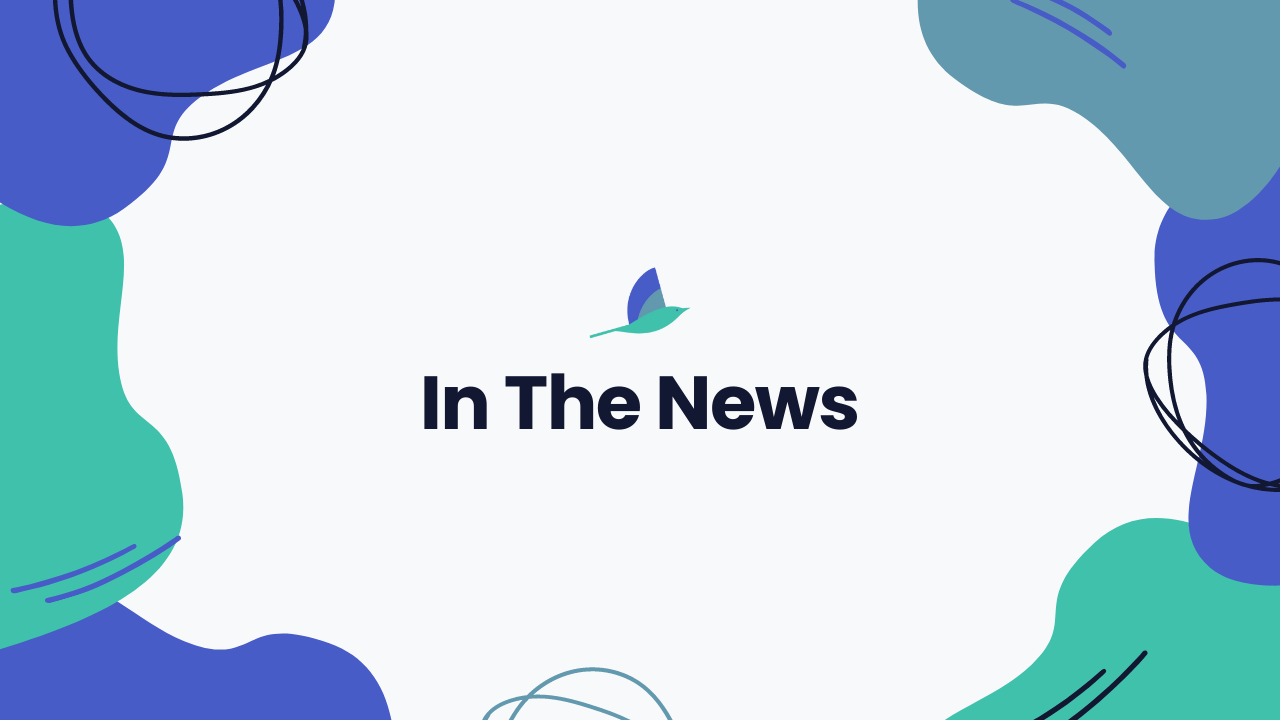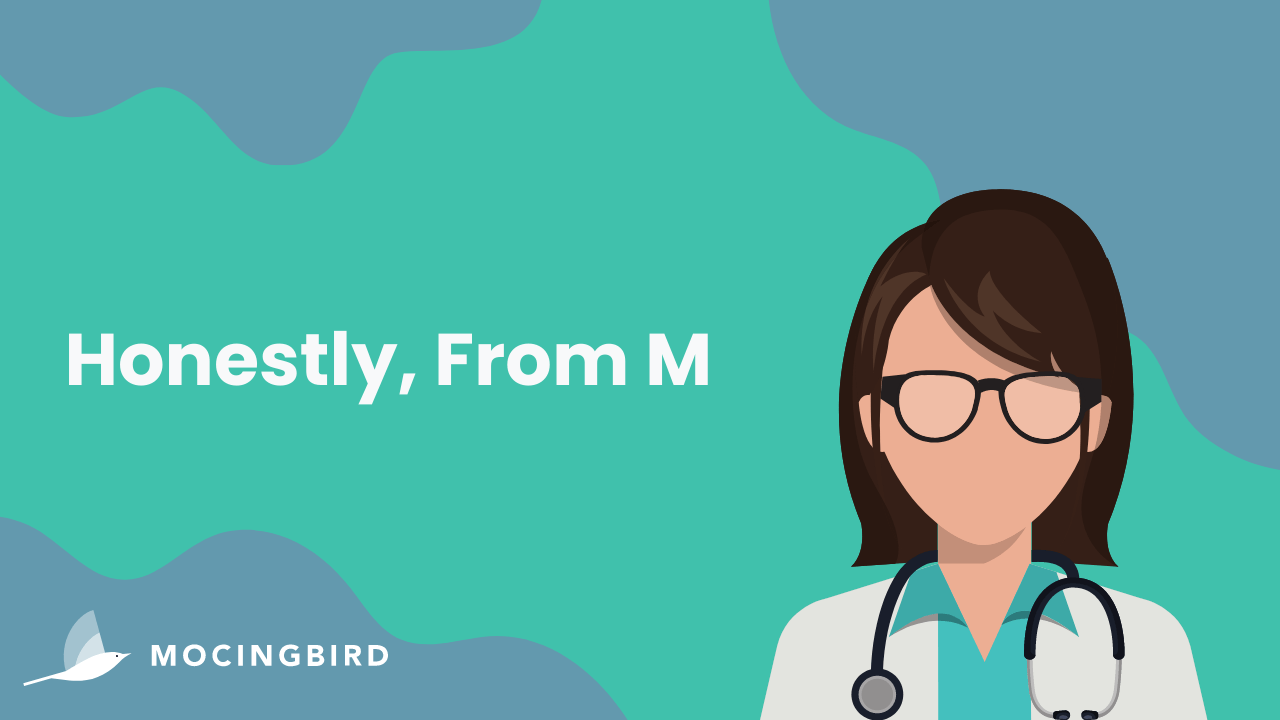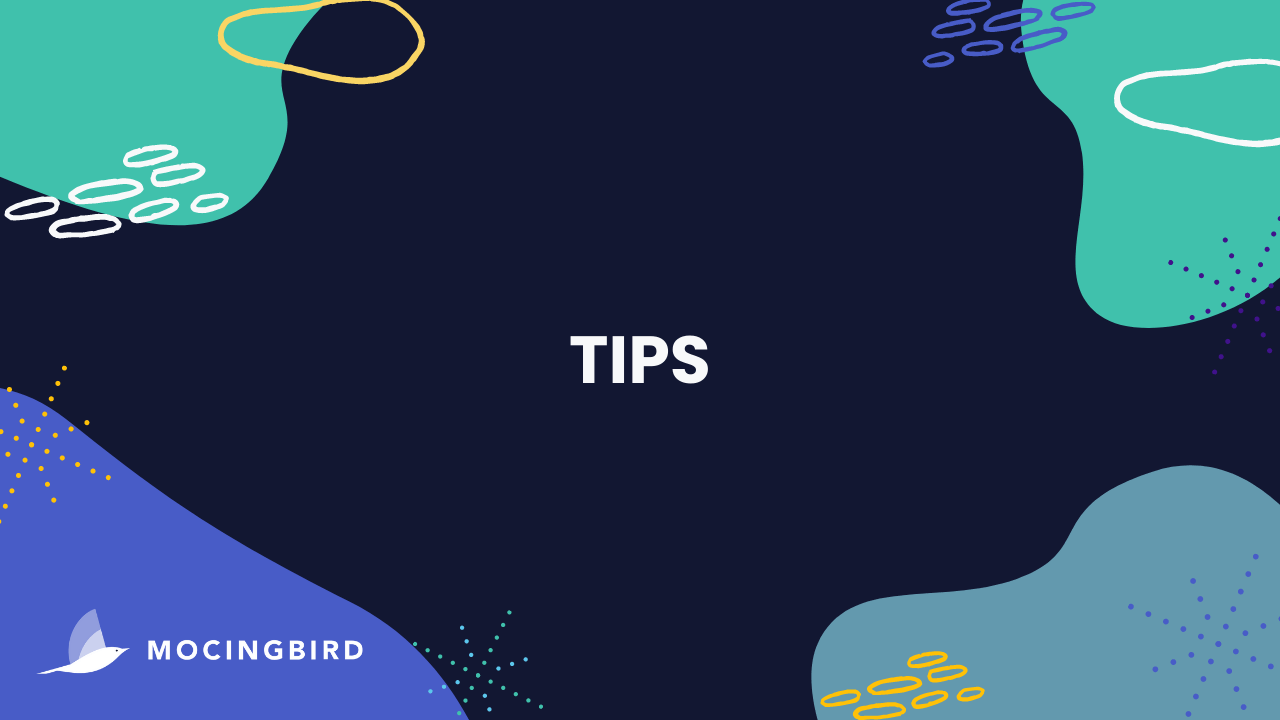In 2021, Mocingbird’s Scott Duarte participated in the highly competitive “Shark Tank” - style pitch competition, Get Started Rhode Island hosted by Cox Business. It was an exciting night consisting of a 3-minute pitch followed by a 5-min quick-fire Q&A from the panel judges. Scott proudly took home the title of the 2021 Get Started Rhode Island winner and event fan-favorite totaling $30,000 in cash prizes.
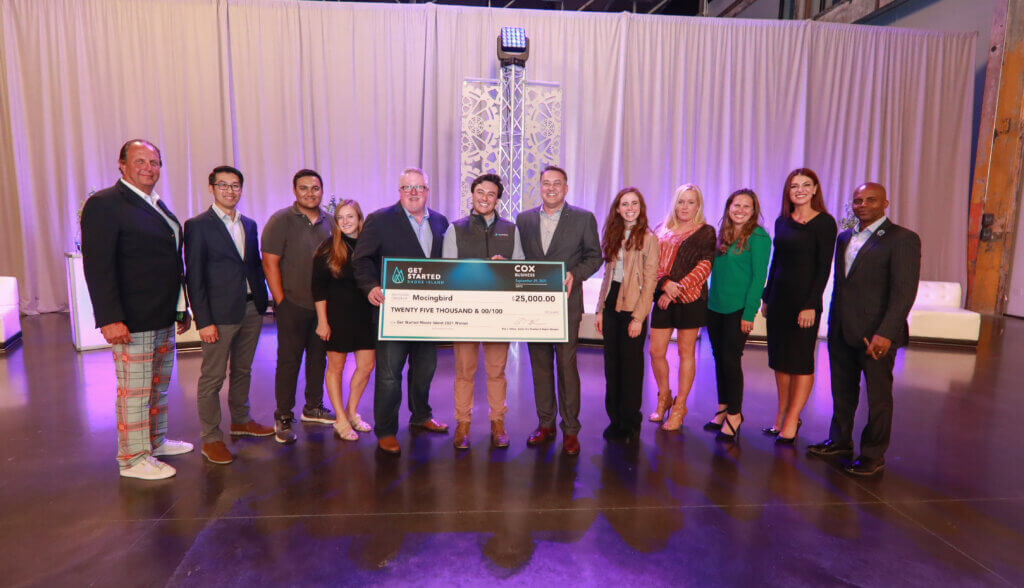
Thank you to the Get Started Rhode Island team especially, Suzette Roberts: Coordinator, and Ross Nelson: Cox Business along with moderator Mike Ritz and Judges Karl Wadensten, Shannon Shallcross, Tino Chow, and Arnell Milhouse.
As a team dedicated to improving healthcare professionals' lives, the award enabled us to accelerate our product expansion in the RN category as there is a significant shortage of registered nurses and an increased demand for travel nurses.
The experience, energy, network, and friends we made in the Get Started Rhode Island Competition are summed up in one word - amazing. We highly encourage entrepreneurs to participate in this year’s competition - sign up at getstartedri.com. From this experience, you’ll get:
- Validation: an opportunity to validate a product/idea in front of individuals in your state that have had so much success in their entrepreneurial journey. The chance to be able to tap into their knowledge is unprecedented.
- Funding: funding is always one of the hardest journeys for a start-up, so to be able to gain a boost in capital and accelerate your product growth creates a huge impact.
- Networking: we received a lot of inbound outreach and brand recognition after the show in areas such as funding, sales, support, etc.
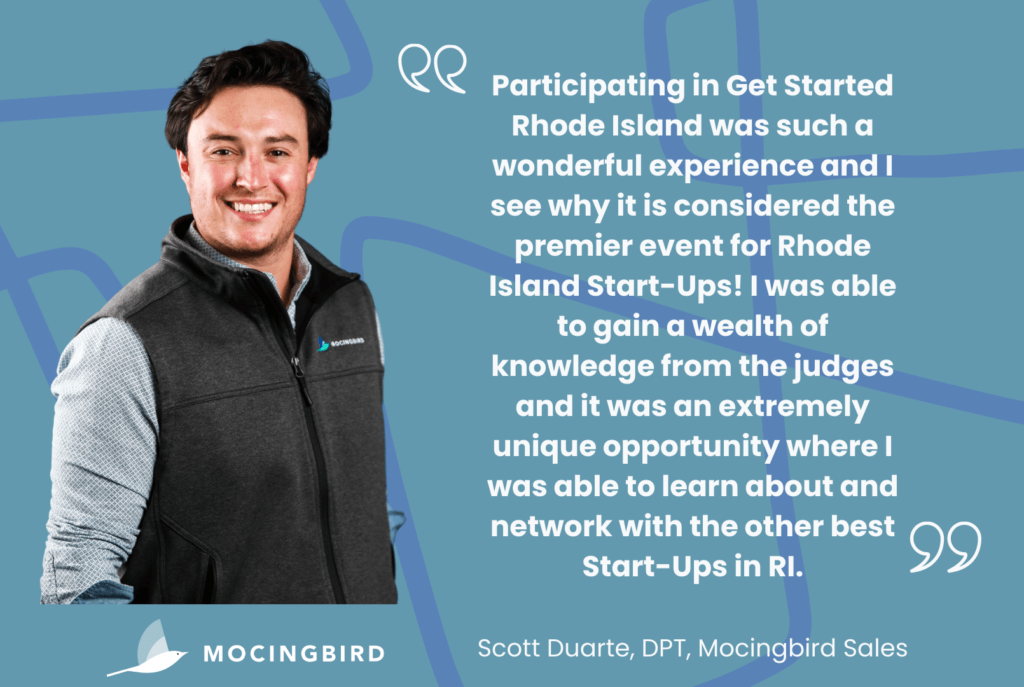
Here is a quick recap of Scott Duarte's fireside chat on The John Loughlin Show: Small Business Saturday podcast on his experience from the Get Started Rhode Island Competition.
John: Scott, what was the trajectory of the Get Started RI competition like for you, what were your expectations going in and what did you discover?
Scott: So the expectations were Rhode Island-based startup and health tech. It's not common. It's usually a West Coast or Boston company. And we wanted to bring this opportunity to Rhode Island. So to be connected with the Get Started Rhode Island individuals and be able to present our idea for validation. It was an amazing opportunity. When do you get the chance to speak in front of some of the most notable people in Rhode Island and present a business plan to see if it will succeed? And then on top of that, we're extremely fortunate to win, but then to be supported by our state Cox business. It's a wonderful opportunity to represent Rhode Island as we continue to go forward with our venture, to say that our state is backing us.
John: So tell me about Mocingbird. What's the big idea, as they say?
Scott: Absolutely. Mocingbird is for healthcare clinicians. So I'm a healthcare clinician myself. And one of the bigger problems that we have is I want to treat patients. I don't want the administrative duties that come with healthcare at times when I'm only seeing my patients, maybe 30% of my day. And the other 70% are spent on these duties. And one of these duties is licensing. So to practice medicine, you have to be licensed. But, hey, let me tell you, if you want a license in Massachusetts, Connecticut, and Rhode Island, you need three different licenses. And here's the problem. It's different deadlines, 50 hours a year have to go into each individual license. So that's a workweek, just maintaining one license. And I live in Rhode Island. I want to practice in Massachusetts and Connecticut. Some of my patients are older. They go down to Florida. I want to continue to be able to treat care for them, but it's dependent on where the patient is, and where you can treat the patient. So I need to be licensed in all these different states and then all these different board certifications to be able to treat the patients the way they should be treated and have me continue their care. And the problem right now is this is managed by an Excel spreadsheet. So the typical process is a license will require 50 to up to 150 hours of continuing medical education. But there are different rules and different classes for each license that you hold. So you can manage one with an Excel spreadsheet. It's not ideal, don't get me wrong, but then all of a sudden you get two, three, a board certification. I have to get a CPR certification.
How do you manage that without a system to do that? And that's what Mocingbird is doing. We're taking that administrative burden out of the administrators, but also the clinician's hands to say, hey, go take education. We will keep track of all the rules and requirements and deadlines for you and notify you of things that matter. And then on top of that, with all that data that we're getting, we can start to suggest classes to you that you don't have to go dig around and find classes that you want to learn about. We kind of have the capabilities in the back end that we can start to show you classes that you may be interested in to meet specific needs that you have.
John: That's great now does it show up on your phone? You get like a notification like ‘you have to renew your Connecticut license?’
Scott: Absolutely. So we're a clinician founded. Dr. Ian Madom is an orthopedic spine surgeon at Ortho Rhode Island is the CEO and Co-Founder. The other Co-Founder is Dr. George Fernaine, an NYU Cardiologist. Their first thing for Mocingbird to go to market was to build a web-based platform. It was great. You could go online on your computer and do it. But then they realized, I'm treating patients all day. I'm in the hospital. What do I need? I need it on my phone. I need that app notification. I need to be mobile-friendly. It's such an important step with any technology part product at this point that we just did not release our first MVP of the product until we have the app formed because we understand how important that is.
John: Yes, I would think that [having an app] makes all the difference in the world, because now you've got that while you're running around that could theoretically go off in your white lab coat while you're taking somebody's temperature and say, oh, look, I've got to take care of this.
Scott: That's what we want, to meet the clinician where they should be met. We don't want a clinician whose license may expire on Monday, and who needs 8 hours of continuing medical education. And it's Memorial Day weekend and they have a family and now they're stuck on the couch taking that education. We want to give them that notification 90 days ahead of time and say, hey, you're going to have to take this class in 90 days. Plan around it so you can start to separate your work life from your personal life.
John: At times this seems like an idea that was so obvious. And it seems like most of the successful startups come up with solving a pain point that's incredibly obvious to everyone. And literally, everyone else kind of looks at themselves and says, why didn't I think of that? That's a really good idea. I think you guys have hit that.
Scott: Yeah, I completely agree with it. But I will say one thing, and this is for any start-up out there, the idea is brilliant. It's the hard work behind it. And I have to thank our team, the people who have created this, the hard work that goes into every single step, where to place a button, how to do the rules, and who will be talking to at the state. It's a painful process, especially with so many different rule sets. We have over 250 rule sets on our platform that we have to build code for. We have to ever-changing every three months. So the work that goes on behind the scenes, that's where the kudos is. When I have a team building this product and the strategy behind it, I can just go out and sell this. I mean, I have the easy part when it's such an easy thing to sell in that in a sense.
John: Now, theoretically, who is your customer? Who pays for the service? Is that the individual clinician? Does the hospital pick up the tab or does the provider pick up the tab Where's the revenue stream from?
Scott: So both. Our main focus right now is B2B [business to business.]So the organization side, because there's no oversight of this. It's a huge risk for them. So they go to a clinician and say, hey, can you renew your license? Your Rhode Island state license is up for renewal. And they say, did you do the right things? And it's a, yes, I did the right things, but they may have not done the right thing. So there's no check. It is an attestation of complete. Now with Mocingbird, that organization can go into it and say, okay, my clinicians completed the right classes. They completed the right amount of classes because God forbid I get audited by the state. There are a lot of ramifications behind that. And we have clinicians that need 50 hours. They submit 75 and it's great and dandy, but they didn't complete five classes that were required by that state. So they're out of compliance and all of a sudden they get audited. Now it's public knowledge. Insurance companies can come back for clawbacks. Your account gets dinged and your initial licensing and credentialing process takes two to three times as long as there's a huge ROI effect there from the organization that they want to have oversight of this, but then also provide a tool for their clinicians that is really unlike any tool in healthcare. I've been in healthcare for seven years now. I've used so many systems that were not built for me. They were built by a technology company, and I have to learn how to use them. We do it the opposite way around. We use our clinicians, we use our administrators to build our product for us. So it's for them. We don't make any changes on the platform unless we're okay with our clinicians and our administrators. So they have the knowledge and its an ease of use. It's not a clunky system that they have to go in and figure out. Oh, here things have changed all the time. It's a normal workflow where they can just really reduce a lot of the inputting into Excel and manual labor that goes into this process.
John: Now since winning the Get Started RI competition what's the progress of the company? Are you guys up and running? You're making money. How's it looking?
Scott: ARR [annual recurring revenue] is on the boom. We're going for another seed round currently of $5 million. And that's to push our product forward. So we have all these tracking capabilities and it's wonderful. But our next logical step is how can we make a clinician's life easier? And it's that education part of it. So to maintain these licenses, you have to take the educational material. And now we have all of a sudden this data that's coming through of where clinicians are licensed, what they are taking because they're submitting that material to us. Now let's connect the dots to that and say, okay, here's all this data that this clinician has given us, and now we have all this educational data and classes. How are we going to be able to connect those two and give those classes to providers before they even start thinking of it? So I'm a cardiologist and I did something for plural fusion or something like that. Now I'm submitting CME material to that. Well, now we have that data. Let's connect it to an educational class that we may host as a repository and send it to that clinician and say, hey, we've seen you've been taking a lot of classes surrounding this material. Here's a class that meets that material so they don't have to go digging for new classes and find it. We want to be that connection for them.
John: So is Mocingbird a company that is looking to go public at some point? Most of these startups, you kind of build it to a certain point, and a big player comes in and says, Gee, that's a great idea. You solved all the problems here's a huge check.
Scott: So we leave it open. I think that is the route. We probably will not be a public company. It will be an acquisition at some point. But we're not going to just it's not a money grab. It's extremely important for our CEO, co-founder, and the team that we work with the right partner. We want to be partners with other companies that are doing the right thing, that are value-based, and that are helping the clinicians and administrators. There are a lot of companies out there that unfortunately are sometimes a money grab. And we don't want to be that. We're clinician-founded because we're trying to help individuals, and that will always be at the root. So on that day and I can't wait for it that we are either acquired or if we go public, even better, we'll still stick to our core values and go forward with that.
John: Is it too late for individual investors who maybe have high net worth to get involved with Mocingbird and how do they find you?
Scott: Yes, absolutely. So there's always an opportunity with closing another round now. So you can get in contact with us through Mocingbird.com or you could reach out directly to me Scott Duarte or Dr. Ian Madom on LinkedIn. And we are entertaining any conversation for an individual investor.
John: Well, we look forward to raising the money. This sounds like a no-brainer, and I think it's going to have a very happy ending.
John: My guests on the Seacon Supply hotline are Ross Nelson, senior VP and northeast regional manager for Cox, and Scott Duarte a sales manager at Mocingbird. Ross, how do people get involved in Get Started Rhode Island? This has been so incredibly valuable to Mocingbird and getting the word out.
Ross: So just go to getstartedri.com and you can fill out the application form right online and submit your application, but you can see clearly why Mocingbird did win the competition last year. They are a great company, really helpful to healthcare workers, and they're going to do great things.
But one of the things about Get Started Rhode Island, is it's about celebrating companies like Mocingbird, but it's also putting the spotlight on the entrepreneurial community in Rhode Island and how much support there is and the companies and the organizations that are behind it.
If you go to get startedri.com on our homepage, you'll see all of our partners and sponsors and Providence Business News, Rhode Island Monthly, Cumulus Media, and RIHub Venture Mentoring Services, and then the winners get $25,000 in cash. They get mentoring with RIHub and the mentoring services. They get services from Cox business for a year and they get all sorts of publicity.
Again, this radio interview is a great opportunity for them to showcase what they do. They get articles in PBN and Rhode Island monthly so they get visibility. They get pitch coaching before the event so they can kind of really sharpen up their pitch and then also the audience winner gets $5,000 in cash. So there are multiple opportunities.
John: This sounds like a great opportunity and a great thing for getstartedri.com. Thank you very much, Ross and Scott. Best of luck going forward with Mocingbird.
Check out the related blog post “Mocingbird’s Scott Duarte Crowned Winner of Get Started Rhode Island - Shark Tank Style.”
Mocingbird is a SaaS Continuing Medical Education (CME) management platform for administrators and clinicians to automate the process of managing medical licenses and certifications. From state licenses, board certifications, to other expiring credentials, Mocingbird covers it all. Clinicians will know exactly which CME requirement is due by when and how to fulfill it before the due date. Mocingbird makes license renewal and CME compliance efficient, accurate, and easy.
